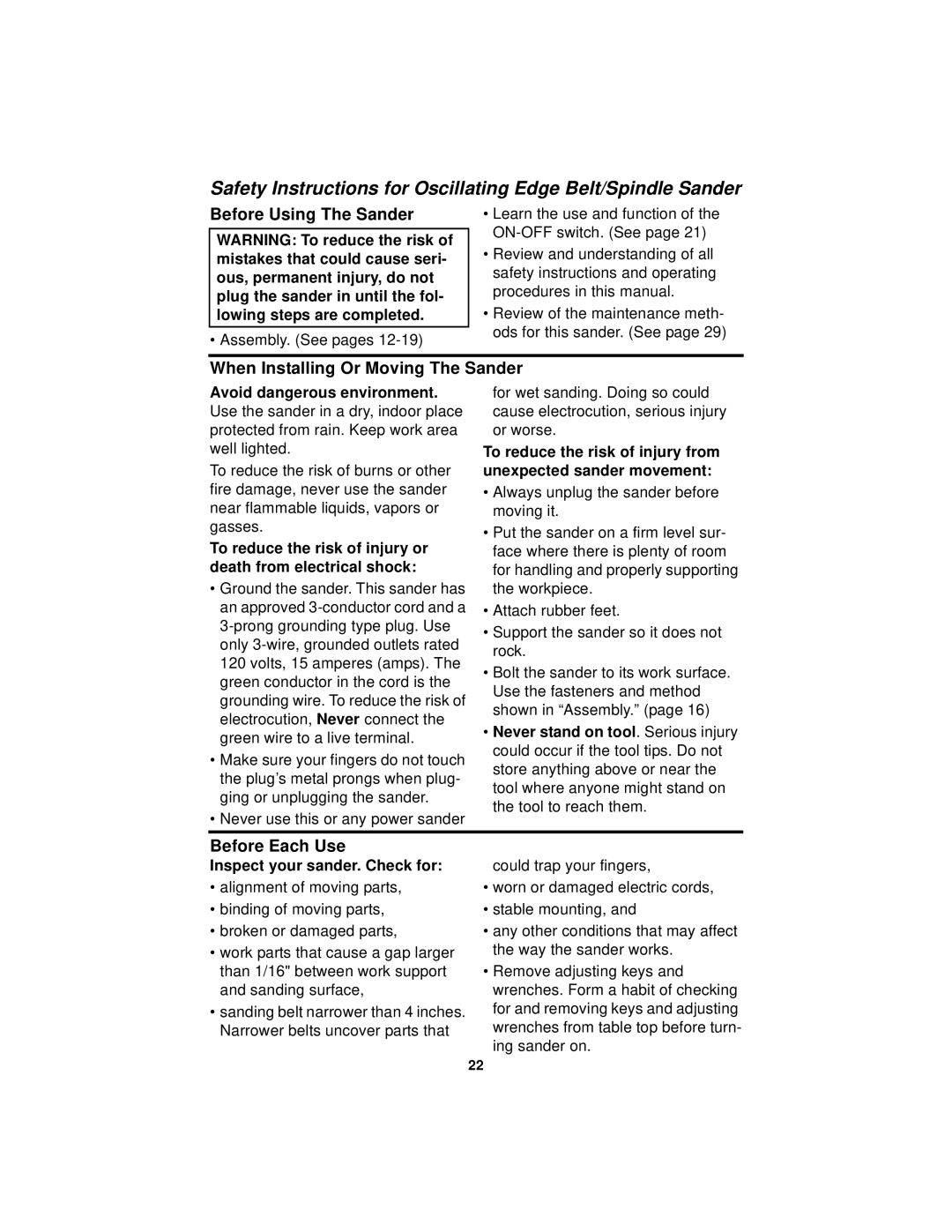
Safety Instructions for Oscillating Edge Belt/Spindle Sander
Before Using The Sander
WARNING: To reduce the risk of mistakes that could cause seri- ous, permanent injury, do not plug the sander in until the fol- lowing steps are completed.
• Assembly. (See pages
•Learn the use and function of the
•Review and understanding of all safety instructions and operating procedures in this manual.
•Review of the maintenance meth- ods for this sander. (See page 29)
When Installing Or Moving The Sander
Avoid dangerous environment.
Use the sander in a dry, indoor place protected from rain. Keep work area well lighted.
To reduce the risk of burns or other fire damage, never use the sander near flammable liquids, vapors or gasses.
To reduce the risk of injury or death from electrical shock:
•Ground the sander. This sander has an approved
•Make sure your fingers do not touch the plug’s metal prongs when plug- ging or unplugging the sander.
•Never use this or any power sander
for wet sanding. Doing so could cause electrocution, serious injury or worse.
To reduce the risk of injury from unexpected sander movement:
•Always unplug the sander before moving it.
•Put the sander on a firm level sur- face where there is plenty of room for handling and properly supporting the workpiece.
•Attach rubber feet.
•Support the sander so it does not rock.
•Bolt the sander to its work surface. Use the fasteners and method shown in “Assembly.” (page 16)
•Never stand on tool. Serious injury could occur if the tool tips. Do not store anything above or near the tool where anyone might stand on the tool to reach them.
Before Each Use
Inspect your sander. Check for:
•alignment of moving parts,
•binding of moving parts,
•broken or damaged parts,
•work parts that cause a gap larger than 1/16" between work support and sanding surface,
•sanding belt narrower than 4 inches. Narrower belts uncover parts that
could trap your fingers,
•worn or damaged electric cords,
•stable mounting, and
•any other conditions that may affect the way the sander works.
•Remove adjusting keys and wrenches. Form a habit of checking for and removing keys and adjusting wrenches from table top before turn- ing sander on.
22
